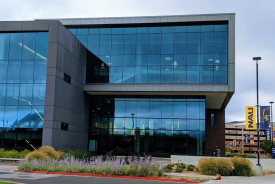FAFSA Fumble Sparks $1.8 Billion Error, Creating Uncertainty for College-Bound Families in Financial Aid Chaos
ByFamilies are grappling with uncertainty as this year's Free Application for Federal Student Aid (FAFSA) faces a substantial delay and an error that could have cost students $1.8 billion in federal student aid. While financial aid offices are unable to provide answers, the U.S. Education Department assures a fix for the 2024-2025 award year. NPR dives into the implications of this FAFSA fiasco, exposing the potential fallout on students and universities alike.

The FAFSA Fumble
This year's FAFSA has encountered a major glitch in the U.S. Education Department's mathematical calculations, impacting how student aid is determined. The error could erroneously inflate some students' and families' apparent income, resulting in reduced aid from federal, state, and school-based sources. NPR previously detailed the mistake, emphasizing its potential consequences for financial aid distribution.
A $1.8 Billion Dilemma
Confirming the error, a department spokesperson disclosed to NPR that the mistake would be rectified for the 2024-2025 award year, acknowledging a staggering $1.8 billion in federal student aid at stake. The Biden-Harris Administration asserts its commitment to making higher education accessible by ensuring students qualify for maximum financial aid.
Financial Aid Offices in Turmoil
Financial aid directors, such as Brad Barnett from James Madison University, expressed shock at the oversight. The revamped FAFSA, mandated by Congress to simplify the application process and expand aid access for lower-income families, now becomes a source of consternation and delays. Colleges, facing a dearth of information from the Education Department, are left scrambling to assist students and families in making sense of the situation.
Individual Stories Amidst Uncertainty
NPR shares the story of Myrna Aguilar, a single parent whose son, David Thornton, received substantial aid, including a $1,500 Pell Grant. The surprise notification that Thornton would lose this grant next year, coupled with the uncertainty surrounding why, leaves Aguilar seeking answers. Financial aid offices, grappling with delayed data due to the FAFSA overhaul, are hindered in their roles of guiding students through the process.
The Fix's Ambiguous Timeline
While the Education Department commits to addressing the FAFSA mistake, details on how and when the fix will be implemented remain scarce. Financial aid administrators across the country are left grappling with the potential impact on aid timelines. The lack of clarity raises concerns about students receiving accurate and timely information for crucial decisions about their education.
Options and Concerns
Financial aid experts present two potential options for the Education Department. The first involves a quick fix to prevent sending inaccurate FAFSA data to colleges. However, this may further delay financial aid offers, causing anxiety for students and families. The second option entails sending preliminary, potentially incorrect data to colleges, with a promise to update it later. This could provide families with initial guidance but may lead to discouragement and lower attendance rates.
As students approach college commitment deadlines, the urgency to resolve the FAFSA issue intensifies. Financial aid administrators stress the necessity of a prompt and effective fix to ensure accurate and timely aid information. The overarching concern is that prolonged uncertainty may lead students to abandon educational pursuits, impacting their future and the higher education landscape. In the midst of this financial aid chaos, the clock ticks loudly, emphasizing the critical need for swift action and transparency from the Education Department.
© 2026 University Herald, All rights reserved. Do not reproduce without permission.








